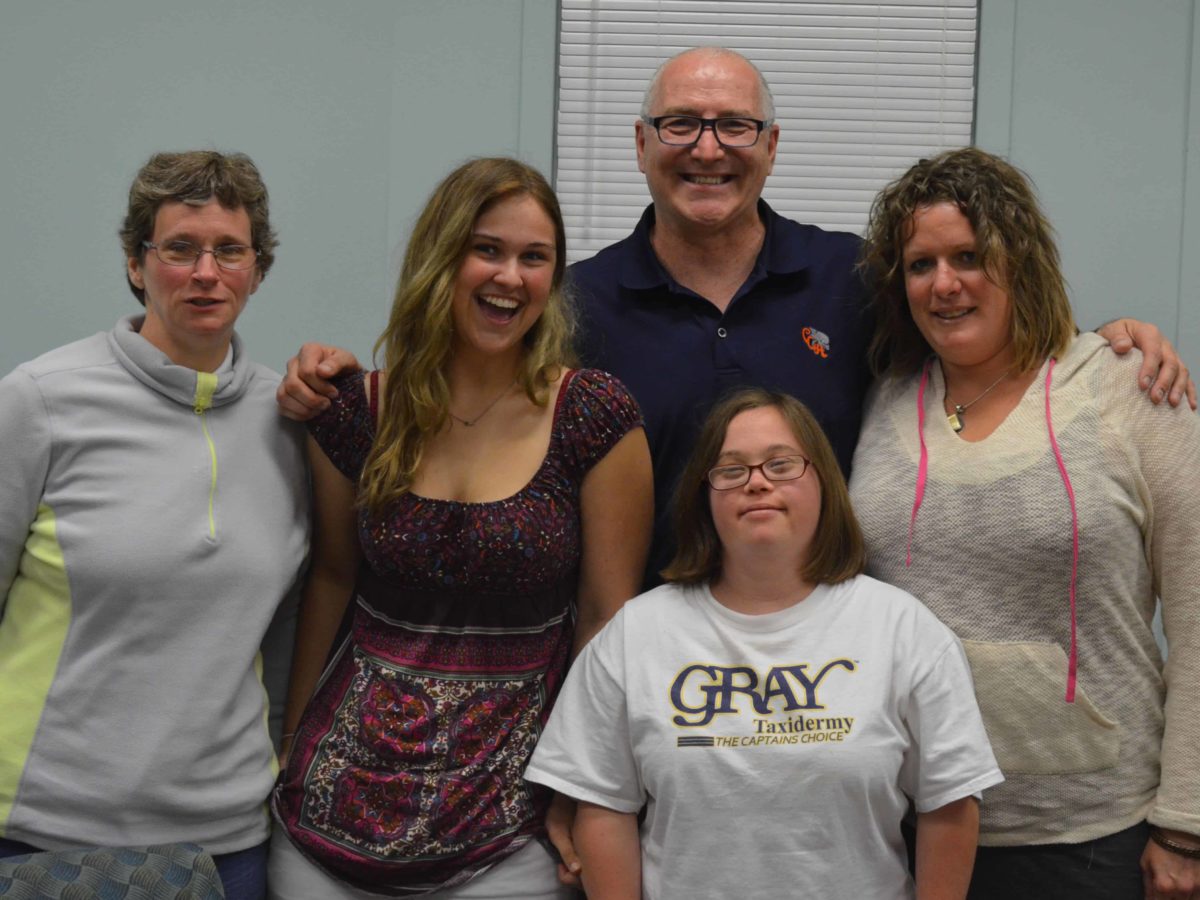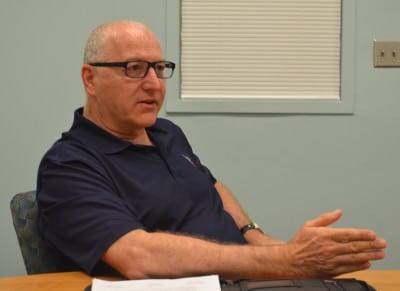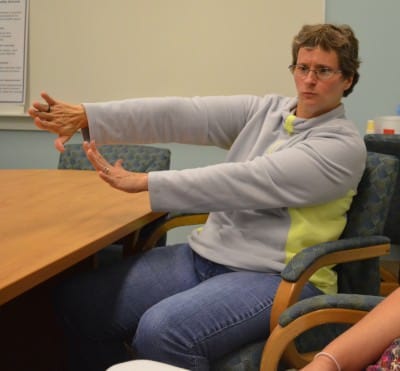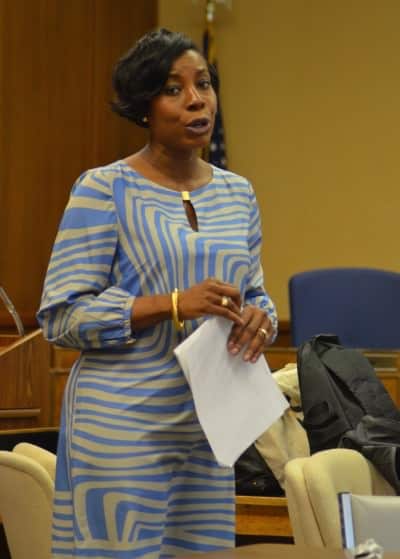



“I like to go to college because I want to learn how to read and go out in the world,” says 52-year-old Dorothy Patton.
With a college diploma becoming the norm, many programs, organizations and governmental agencies have charged themselves with making sure that as many citizens as possible have access to higher education.
One group in particular is the focus of Tim Sweeney, Dean of the Dare campus of College of The Albemarle (COA).
College of The Albemarle is a community college, and a couple of years ago, under Tim’s leadership, it began the PACE program: Pathways to a College Experience. It’s a program that brings higher education to those with cognitive and developmental disabilities.
Dorothy was part of the first class of students to enter the program back when Tim started it. It had always been her ambition, but until she talked to Tim, she didn’t realize it was a possibility.
“I call this the new civil rights movement in the United States,” Tim said.
It’s not unique to COA. Mandy Earnest, coordinator of the PACE program, says there are 10 such programs at colleges around the state. But it’s new to College of The Albemarle’s Dare campus, and for students like Dorothy, a dream fulfilled.
“We want our students to be able to leave college, to have a job and be independent,” Tim said.
And that’s Dorothy’s goal. She lives in a group home and is eager to get out on her own.
“It’s kind of hard in there for me. I’m just taking it one day at a time. And deep breath. It’s kind of hard for me because you’ve got to follow the rules. You’ve got to tell them when you go outside or anything like that,” she said.
The process for PACE students is similar to the process for basically any other student. They pay for classes, they apply, complete with an application and three references. When they’re accepted, they take a class that teaches them college terminology and what to expect at a university. They also take classes that give real-life skills, like how to write a resume or go on job interviews.
The program signs up mentors, college students who help the PACE participants and go to class with them. Twenty-one year old Anna Figiel is one of them. She’s a student at COA.
“I think people with disabilities are as complicated and intriguing as anyone,” she said when I asked why she volunteered. “I think they should have equal opportunity.”
Not every class is open to PACE students. They’re restricted based on prerequisite requirements and placement tests. But any class that is open to a freshman is basically open to them. They take them for enrichment, auditing the classes but getting a grade so they know how they are doing.
Tim mentioned a music appreciation class that he thought would be particularly difficult. It wasn’t just listening to tunes on the radio, but involved the philosophy and history of music as well.
“I did pretty good in that. It was that question and you got to circle the numbers and see what was right, what was wrong. All of that,” Dorothy said.
She got a C in the class. She also took a class that trained students how to help people with Alzheimers. It was a particular favorite of Dorothy’s.


“It was pretty good,” she said. “I loved it because it taught me how to help other people. How they do.”
An important aspect of the program is internships. Starting in the second year, the students are eligible to work at local workplaces to learn job skills. One of the places Dorothy worked was a realty agency, where she thrived. Her job was to put together the housekeepers’ cleaning equipment. She had to make sure everything they needed to clean was included so that they didn’t have to come back to get something they forgot. She had a perfect record, which isn’t a small feat, and she got a raise.
Mandy hopes to get students involved in certification programs that can help them secure a job when they leave. She mentioned a hospitality program that teaches students everything they need to know about working at hotels or motels: how to greet guests, clean rooms, check people in, carry luggage. At the end, they would get a certification that would show they are ready to work.
She and Tim are working on better job placement and job-training programs so that soon, PACE students can move on from school to independence.
Right now, only a handful of students are involved in the program. Tim hopes to expand it to other COA campuses and get more people involved.
Tim says the most unexpected part of the program for him is the relationship between the mentors and the students.
“They’re college friends. They were going to lunch together. They were going to the movies together. It’s a phenomenon that I didn’t expect to happen,” he said.
And there are surely more unexpected benefits to come as the students of the PACE program continue in their pursuit of a higher education.


